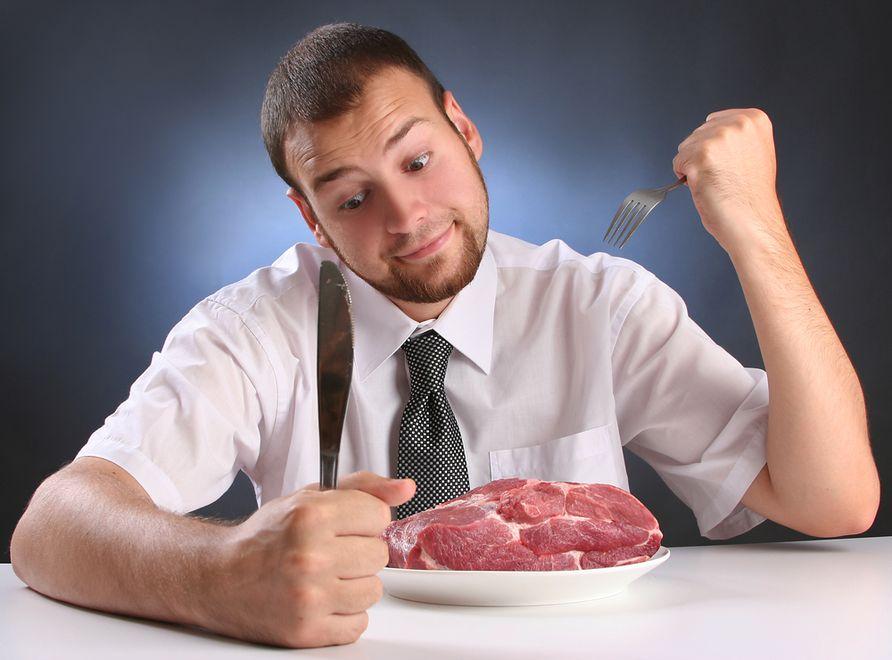
Why Eating Less Red Meat May Help Your Heart
Red meat is that which has the color when raw but turns to dark brown color after cooking. Beef, mutton, and lamb are some examples of red meat.
Red meat has nutritional benefits, but many research shows that it increases the risk of heart disease as it these harmful components.
Prevents accumulation of Excess saturated fat
Some red meats have a high content of saturated fat that raises the levels of blood cholesterol. There is good and bad cholesterol. Red meat increases LDL cholesterol that increases the risk of getting heart diseases. If you have a heart condition, the cholesterol and saturated fat in red meat worsen the situation. It is better than you take white meat such as fish, or chicken as they have minimal saturated fats.
Reduces Blood vessel hardening by Cartinine
Carnitine is one of the compounds found in red meat that some manufacturers use as an additive in energy drinks. It causes atherosclerosis a leading cause of clogging and hardening of arteries. Bacteria in the intestines convert carnitine a protein build block into compounds that speed up thickening and hardening of artery walls. Lamb, beef, and venison have plenty of carnitine than pork which is in the red meat category. Fish and chicken have much less carnitine as its level increases with redness of the meat. Hard arteries slow movement of blood in the vessels thus the heart labors more to circulate it in the entire body.
Reduced risk of becoming overweight or obese
Regular and large helpings of red meat frequently because of a significant weight gain. If you are overweight, it will increase the risk of high blood pressure which in turn increases heart rate.
The link between weight and blood pressure is that a large body requires more effort by the heart to pump blood that will reach all the cells. The need for increased blood pressure strains the heart making it more prone to conditions that accelerate a heart attack or cause other forms of malfunction. Excess fat builds up by consuming much red meat can damage the kidneys which also help in regulating blood pressure.
See Best Nursing Writing Company reviews by our customers and writers. We are among the best rated company in providing nursing services.
If you are overweight, other help problems are likely t manifest in your body. These include high cholesterol and blood sugar. These are notorious for clogging the arteries thus causing a slowdown in the movement of blood or even clotting. All these effects plus excess weight contribute to an increase in heart rate for it to pump blood to all body parts.
How to Prevent Harm from Red Meat
Although red meat increases the risk of heart disease, it does not mean that you cannot eat it. You can take it safely even if you suffer from blood pressure if you reduce the number of saturated fats. This involves eating smaller helpings of red meat and choosing the leanest cuts. Beef or lamb has moderate potassium of 259 and 290 milligrams per normal serving.
Although red meat increases the risk of heart disease, it does not mean that you cannot eat it. You can take it safely even if you suffer from blood pressure if you reduce the number of saturated fats. This involves eating smaller helpings of red meat and choosing the leanest cuts. Beef or lamb has moderate potassium of 259 and 290 milligrams per normal serving.
Women who take two red meat servings a day increase the risk of heart disease by up to 30% compared to the women who eat three or four meals a week which is half a serving every day. You can lower the cholesterol and saturated fats intake by observing these tips before eating red meat.
- Always remember that the approximate portion of meat size is three ounces or a deck of cards
- Always take leanest cuts of meat. Lean cut usually is meat from the parts that have words loin, sirloin or round on the package.
- Trim off much fat as possible from cuts of meat before cooking and pour the melted fat off after cooking.
- Use healthier cooking methods such as broiling, baking, grilling or stewing instead of frying.
Red meat can harm your heart but you can still enjoy its nutritional benefits by taking it is small helpings.

